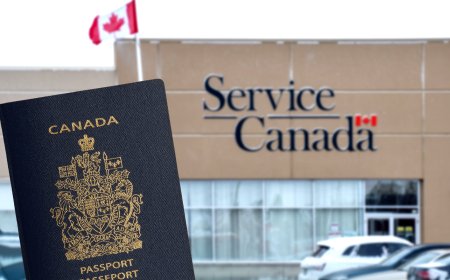Breaking: IRCC Drops LMIA Points from Express Entry Scoring
IRCC to remove LMIA-based job offer points from Express Entry CRS. Learn how this change impacts candidates' scores and Canada's immigration process.

Canada’s Immigration, Refugees, and Citizenship Canada (IRCC) has announced a significant shift in the Express Entry Comprehensive Ranking System (CRS). Express Entry candidates will no longer receive additional points for having a Labour Market Impact Assessment (LMIA)-based job offer.
Previous Point Allocation
Under the existing system, candidates with an LMIA-based job offer could gain:
- 50 additional CRS points for most job offers.
- 200 additional CRS points for high-level executive positions under NOC TEER 0.
This extra advantage often determined whether a candidate received an invitation to apply (ITA) for permanent residency.
Implementation Timeline
While the exact date for this change has not been specified, the government’s CRS calculator as of December 18 still awards points for LMIA-based offers.
Understanding the Comprehensive Ranking System (CRS)
The CRS is the points-based framework used to rank candidates in the Express Entry pool. Eligible candidates are scored out of 1200 points based on factors such as:
- Core Human Capital: Age, education, language proficiency, and work experience.
- Additional Factors: Provincial/territorial nominations, family ties in Canada, French language skills, Canadian education credentials, and arranged employment.
Key Highlights
- Core Human Capital Points: Maximum of 600 points.
- Additional Points: Up to 600 points.
With the upcoming change, arranged employment will no longer contribute to additional points, directly impacting CRS scores for many candidates.
Insights on Express Entry and NOC Classifications
Canada uses the National Occupation Classification (NOC) system to define job roles. To qualify for Express Entry, candidates must have work experience in NOC TEER categories 0, 1, 2, or 3, collectively referred to as “skilled occupations.”
Express Entry profiles are assessed based on the following TEER classifications:
- TEER 0: Senior management roles requiring extensive experience.
- TEER 1 to 3: Skilled positions requiring varying levels of education and training.
Cut-off CRS scores for recent draws have generally remained high, frequently above 500, except for category-specific draws.
Temporary Foreign Worker Program (TFWP) Updates
The Temporary Foreign Worker Program (TFWP) enables Canadian employers to hire foreign nationals on work permits. A positive or neutral LMIA ensures the hiring does not adversely impact Canadian workers.
Recent Modifications
- Suspension of Low-Wage Stream Processing: Effective September 2024.
- Increased Pay for High-Wage Stream: Workers must now earn 20% above the median wage for their occupation and region, up from the previous median wage requirement.
The government aims to strengthen the integrity of the TFWP and align immigration policies with its Immigration Levels Plan, setting a 2025 target of 82,000 net new TFWP work permits.
Rationale Behind the Change
Immigration officials, including Minister Marc Miller, emphasize that the decision aims to:
- Reduce Fraud: Eliminating the incentive to purchase LMIA-based job offers.
- Strengthen Integrity: Enhance fairness and transparency within Canada’s immigration system.
“Removing these additional points will discourage LMIA misuse and foster trust in the Express Entry process,” Miller stated.
This update marks a pivotal step in shaping Canada’s evolving immigration landscape. Further details will be released as the implementation progresses.
What's Your Reaction?
 Like
0
Like
0
 Dislike
0
Dislike
0
 Love
0
Love
0
 Funny
0
Funny
0
 Angry
0
Angry
0
 Sad
0
Sad
0
 Wow
0
Wow
0






































































